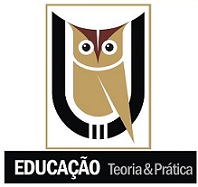Autoeducação e liberdade na Pedagogia Waldorf
DOI:
https://doi.org/10.18675/1981-8106.vol23.n42.p161-175Keywords:
autoeducação, liberdade, Pedagogia WaldorfAbstract
Este artigo discute o significado de educação para a liberdade na Pedagogia Waldorf. A análise fenomenológica é adotada como suporte para compreensão do autodesenvolvimento da consciência docente em direção à sua potencialidade intuitiva. A autoeducação dos professores é a tradução prática dos fundamentos filosóficos concebidos por Steiner. Na formação de professores Waldorf, a autoeducação é explorada na dialética entre os movimentos psíquicos de simpatia e antipatia em relação ao mundo. A autoeducação seria então um princípio do individualismo ético do docente Waldorf para evitar tendências unilaterais do afastar-se ou perder-se da realidade. A conciliação entre os ideais de educação e o contexto real onde educador e educandos se encontram seria realizada pela capacidade criativa, denominada por Steiner de fantasia moral. Para não redundar em prescrições e receitas, ou fórmulas que apenas repetem o passado, o desafio do ideal da Pedagogia Waldorf é uma atualização do professor em nível existencial e profissional.Downloads
Additional Files
Published
How to Cite
Issue
Section
License
Authors who publish in this journal agree to the following terms:
a) Authors assign copyright to the journal, with the work simultaneously licensed under the Creative Commons Attribution License that allows sharing of the work with acknowledgment of authorship and publication in this journal.
b) The policy adopted by the Editorial Committee is to assign copyright only after a period of 30 months from the date of publication of the article. After this time, authors interested in publishing the same text in another work must send a letter to the Editorial Committee requesting the release of the assignment of copyright and wait for a response.
c) This journal provides public access to all its content, since this allows greater visibility and reach of published articles and reviews. For more information on this approach, visit the Public Knowledge Project, a project that developed this system to improve the academic and public quality of research, by distributing OJS as well as other software to support the public access publication system to academic sources. The names and email addresses on this website will be used exclusively for the purposes of the journal and will not be available for other purposes. This journal provides open any other party  This work is licensed under a Creative Commons License
This work is licensed under a Creative Commons License











